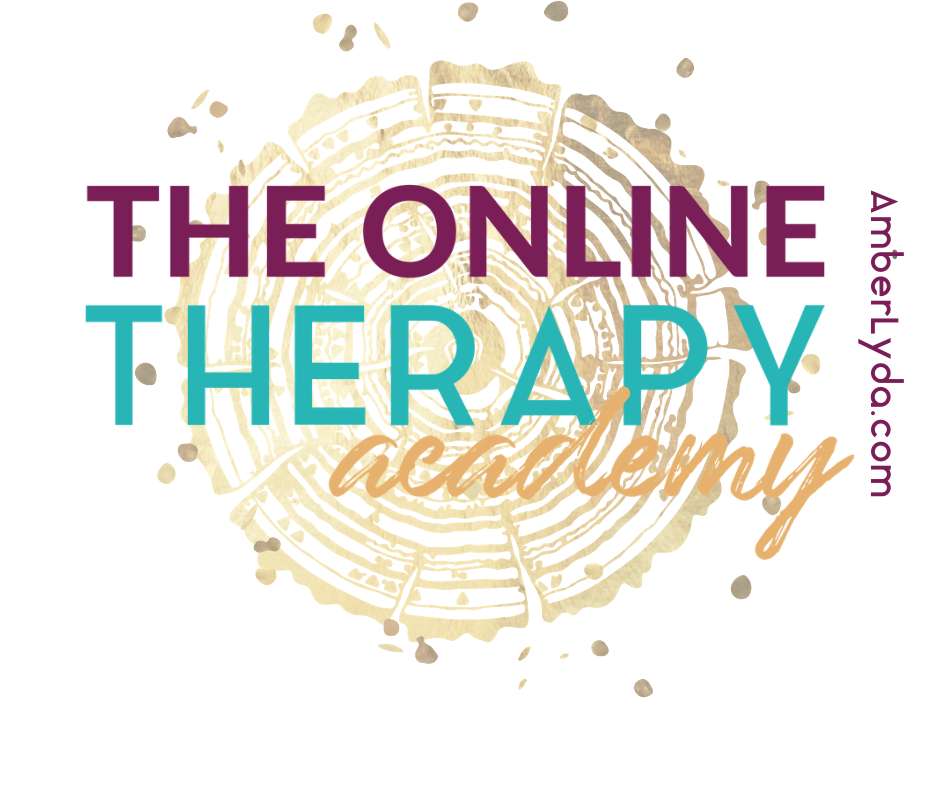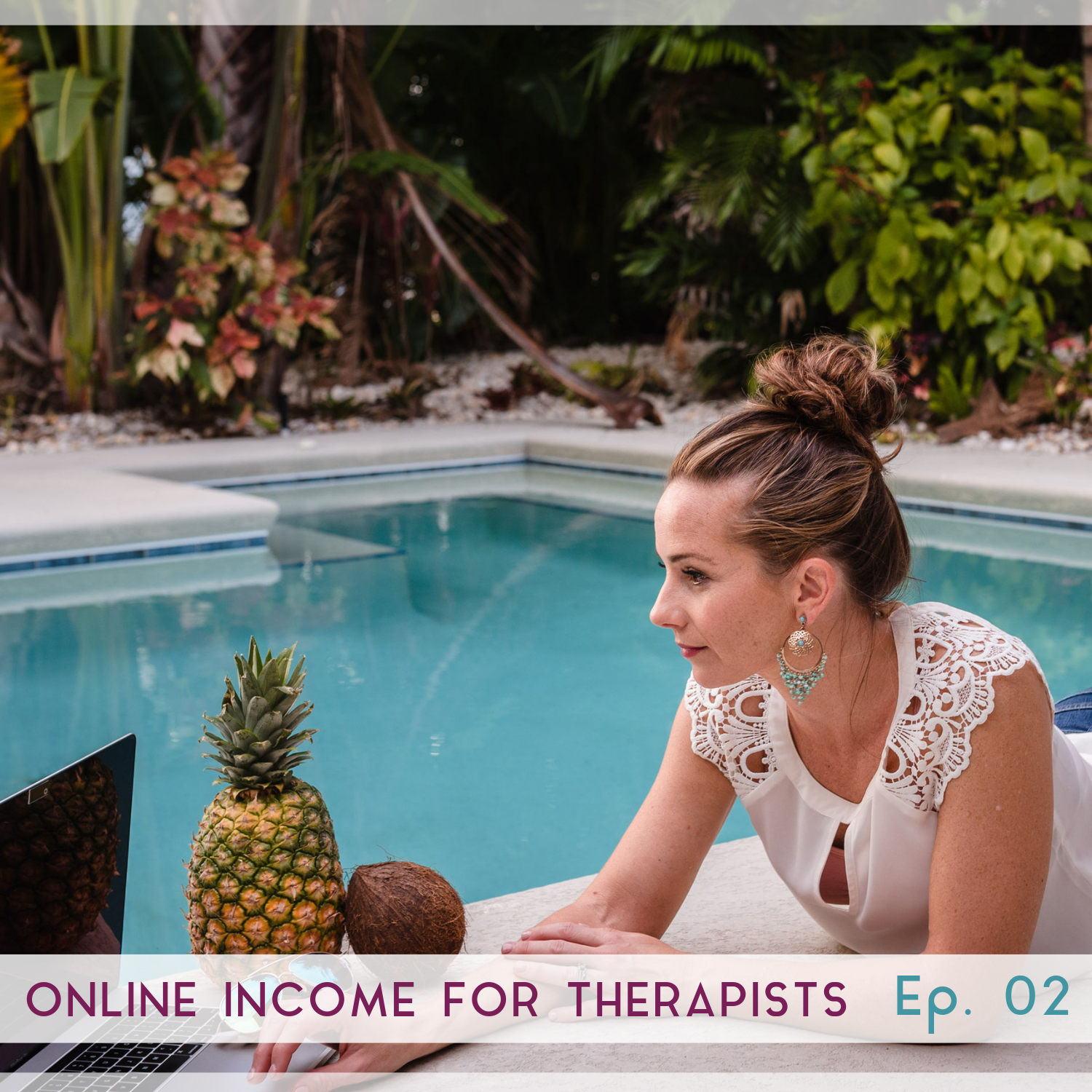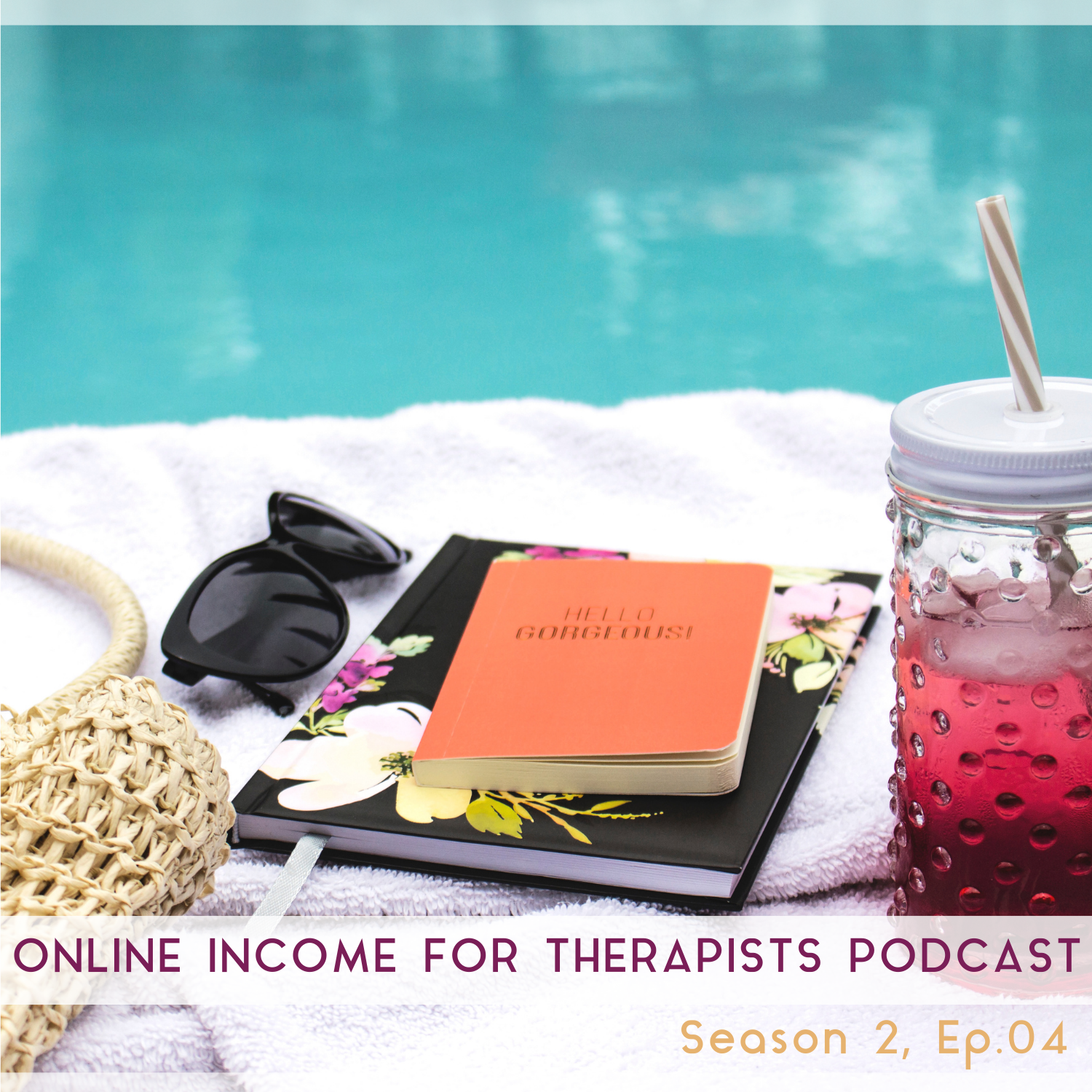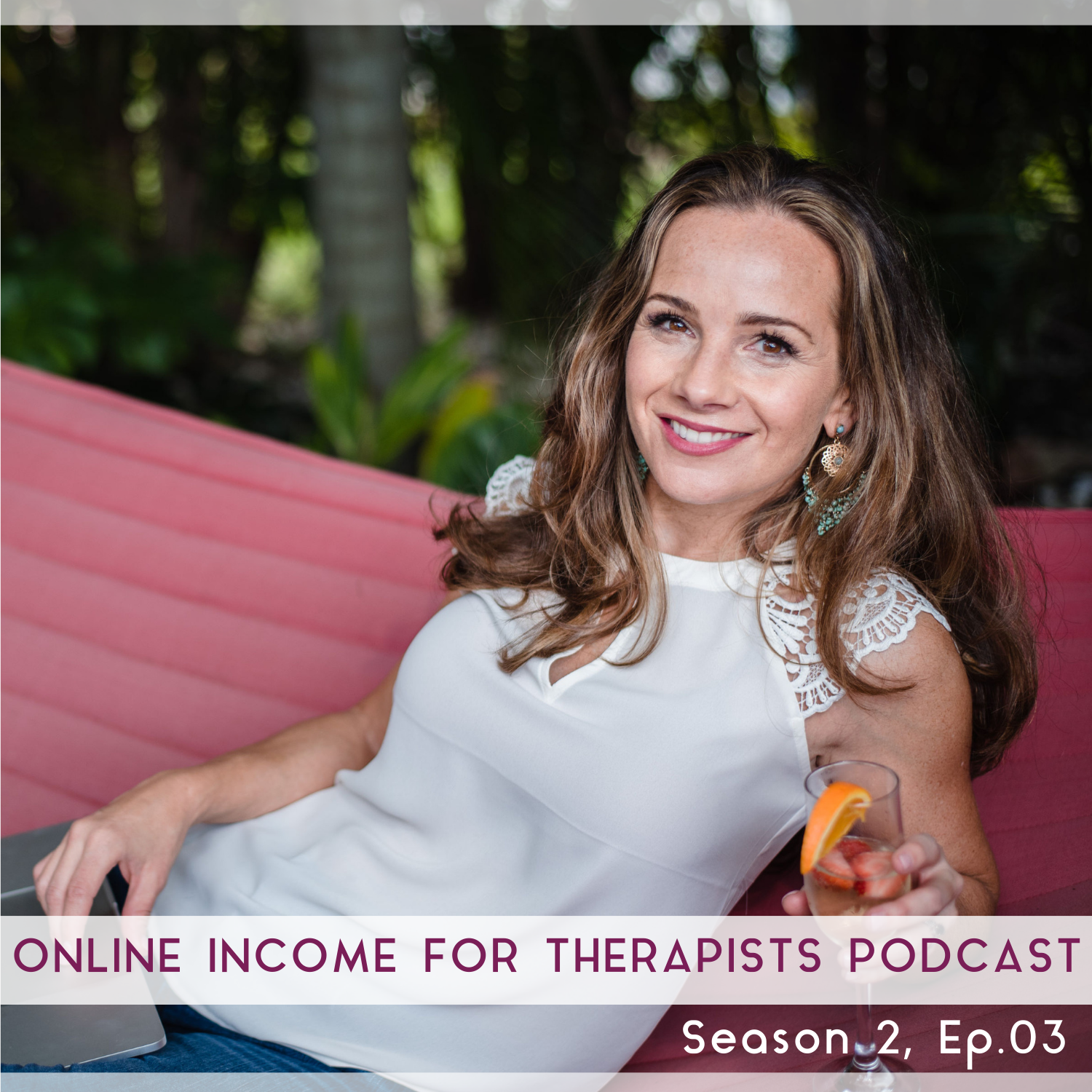Episode 2: Do I Need Specialized Training to Start an Online Therapy Practice?
Subscribe and never miss an episode!
iTunes | Spotify | Stitcher | Google Podcasts Overcast | Castbox | Pandora | Amazon Music Podcast Addict | Podchaser | Pocket Casts Deezer | Listen Notes | PlayerFM | Podcast Index Castro | PodFriend
Welcome to the online income for therapists podcast!
what this episode is all about
Wondering if you need specialized training to start an online therapy practice? I've got you covered. Let's talk it out. We cover things about informed consent, CEU's, some of the best courses, state, ethics, and insurance company requirements, liability insurance and just where to find all the information!
Want to Follow Along…
Introduction: (00:14)
Hey, I'm so, so glad that you're here. This is the Online Income for Therapist Podcast and I'm your host, Amber Lyda. Together we learn about how you can incorporate more freedom, flexibility, and flow into your work life and into your personal life and we do it by building our businesses online because when you work online, you can be working from anywhere and you can work at any time. Together we will take your hard-earned expertise that you already have, combine it with your passion to serve others and we'll turn that into a business or businesses online. You can extend the impact that you make with others as well as increase your income. I want you to be able to do the work you love to do and still live a life worth savoring.
Do You Need Specialized Training To Provide Online Therapy: (01:25)
We're going to jump straight to the chase. A question I get asked all the time is, do I need specialized training to provide online therapy and I'm going to give you the answer immediately and it's yes, yes, of course, you need training to do something that's totally novel to you, right? We're having to think about things that you might not otherwise have put a whole lot of thought into. So the Amber answer to this is yes, yes, yes, yes, yes you do. But I'm going to make it a little bit more sophisticated of an answer than that by giving you some details about who requires you to have additional training and of what type. And also what I recommend personally that people do when they're beginning an online therapy practice. You ready? Okay. Here we go.
Does Your Informed Consent Need an Addendum?: (2:22)
So just speaking as a clinician, I think a lot about all of the novel situations that I found myself in with online therapy that I just wouldn't have known could come up until I was in the situation had I not had some previous training in ethics and legal issues and security with telehealth. So I can tell you about a few of those right off the top of my head. For example, I didn't know that my informed consent was going to need to have some very special addendums to it if I was going to be doing my therapy online. I also wasn't really clear on how I would manage emergencies and crises if my client wasn't in the same county that I was in much less state. Because you might be aware if you spend some time thinking about this, that emergency response is very different across one city or county compared to another. For example, in one place that I lived, there was something called a Mobile Response Team. So if I became concerned about a client who might be thinking about suicide or who was psychotic, I could call the Mobile Crisis Response Team and they would respond to where my client actually was, they would respond in person. They would do an assessment and they were clinicians so they were well trained. And based on that assessment they would decide if the client needed an involuntary hospitalization or if the situation could be deescalated. It was a lovely partner to be able to work with. However, in many other places that sort of service doesn't exist and I know a lot of clinicians will say, “well, I would just call the police” and sure that is an option. But as we know in some counties, police are very well trained to do mental health assessments and in other counties, not so much. I've worked in places where the police didn't even know that they were able to involuntarily hospitalize someone or maybe they couldn't transport a person who was in emotional crisis without handcuffing them. So there are a lot of details that I really needed to sort out before I launched doing my online practice because even though I planned to screen out folks who were likely to need crisis services, you just never know what's gonna happen in someone's life and so we can't predict that with 100% certainty.
CEUs or a Course: Zur Institute: (4:58)
So I lay out these examples just to get you thinking about the fact that there are some things that just aren't going to occur to you without being exposed to materials specifically about telehealth. So I really do recommend that you do some CEUs or you do a course. I guess I'm saying even more than just simple consultation that you really kind of dive deep. Now, it doesn't need to take you forever. You can do some pretty basic stuff pretty quickly. When I first started I did, because I'm an overachiever, I did at 26 or 28 hours CEU course through the Zur Institute. That's Z-U-R. It was a fabulous, thorough, inexpensive entree into doing online work. He covered ethics, he covered legal issues, he had great shortcuts to things. And you covered security issues.
Person-Centered Tech: (05:56)
Another program that I really like and also took advantage of in the beginning was Person-Centered Tech. It's a fantastic website and Roy, who runs it, includes all sorts of really useful articles. He does product reviews so that you know if the software you want to use is truly HIPAA compliant and secure. It's a really fabulous site. He also offers CEUs. So I've taken some from him, I've taken some from Zur. The one thing that I did notice when I was doing trainings myself was that I didn't see a lot about practice building, in fact straight that, I didn't see anything at all about practice building. And so I had never done any kind of private practice before I did online only. So I took lots and lots of courses about how do I build a practice, private practice, and then I had to adapt them to build my online private practice.
What Is Covered In The Step-by-Step Course: (06:59)
So that's what I teach in my course. I cover ethics and I cover state regs or country regulations and I cover security. But I also add every single week practice building specific to online private practice. It was the thing that I was missing, so it's the thing that I want to bring out into the world.
Specialized Training: (7:22)
So let's go back for a moment to talk about specialized training. I think you hear me pretty clearly that I am a strong proponent of getting additional training because they're going to be blind spots that you just can't predict and other people have gone before. So why not take advantage of that? But the type of training that you need is going to be variable. So let's think about the sorts of people or organizations that might require of you, so other than yourself and other than my strong recommendation, that may require of you some sort of additional training.
Ethics Code: (07:58)
Let's start with your ethics code. So you might want to check a strike that you definitely want to check with your professional body and their ethics code in guidance statements. Remember that your ethics codes get re-edited maybe every three to seven years. But in between that time, technology is quickly changing and our practices are changing. And so some professional organizations will also release guidance statements in between the official publishing of their edited professional ethics statements. So you just wanna check and see if there's anything in there that's specific to extra education around telehealth. And there are some that do all whole lot of writing. So for example, social workers have very clear statements in a recent release of their guidance statement about telehealth. So you definitely want to check that out and see what they say. Some of them say zero, some of them get kind of general recommendations, “like you should do some additional training”, and others get very specific and say, you should do this many CEOs.
State Law: (09:17)
Okay, so check with your ethics or your guidance statements. You're also going to want to check with your state law. Many states say absolutely nothing about how much additional work you may need to be ready to provide telehealth. However, many states are starting to incorporate regulations that say you need either a certain number of CEUs in order to provide telehealth or you need a certification. If they recommend a certification, they will almost always tell you who you need to go through to get that certification.
Insurance Companies: (9:54)
The next place you want to check is any insurance company you are paneled with. Many don't require any additional telehealth training. However, some of them do and when they do, they might require a certain number of CEUs or they might require a particular certification. And I say particular on purpose. Many require you to go through a particular certification with a company that they have established a relationship with.
The Answer Is Yes!: (10:24)
So the answers to the question is yes, yes, yes, you should get some additional training. The answer as to what kind of training is going to depend on your state board or your country regulations. It's going to depend on your professional ethics or guidance statements. It's going to depend also on your particular needs. So for me, remember I didn't have any training in private practice building, so of course like the one that I offer would have been very, very well received by me. I wanted that kind of help. So you might have to decide for yourself where is it that I need the most help? I was also highly neurotic and afraid of messing things up from a security point of view. So I really appreciated the depth that Roy went through on Person-Centered Tech and I felt much calmer about my technology after going through some of his trainings. Occasionally I felt much more anxious, but I also felt like, “okay, okay, I've got it now. I've got it. '' So think about what you personally need.
Liability Insurance Provider: (11:37)
The last place that I would be thinking about, so we've got your state or country regulations, we have any professional guidance or ethics statements, we have any insurance company that you may be paneled with, we have your personal needs, and then the last place we're looking at is your liability insurance provider. And if your liability insurance provider does not cover telehealth, kick them to the curb y'all. There are plenty of companies who do. I use the trust and they have been absolutely outstanding. I should get with them and see if they want to support the podcast. So check and make sure that they cover you first of all and check and see if they need you to do any particular certification or number of CEUs in order for them to cover you.
Recap: (12:29)
So I hope that's helpful. Let's just recap real quick. Amber says, for sure you definitely need some additional training. Make sure you don't have any blind spots. You need to check to find out what your state regulations, your state law or your country law if you're outside of the U S. You want to check what your professional organizations, ethics or guidance statements say You want to check with any insurance companies that you are paneled with and you want to check with your liability provider.
How Do You Know How To Get The Information?: (13:06)
Okay. Now if you're thinking, “I don't know how to get to all that information”, never fear. In the show notes, I will post a link to my Get It Going Quick Checklist, which walks you through all of the initial steps you need to take to start up your private practice, including shortcuts to your state regulations, and that covers almost all of you, and shortcuts to your professional ethics. So you don't need to go Googling for the next few hours. You can get there really quick. If you know that you are not going to go to the show notes, don't worry. I also have that, Get It Going. Checklist linked in the Online Therapists Group. So all you have to do is click on that banner photo. You'll see some words pop up on your right and you'll see a link to it right there. I hope that that was helpful. I hope that you will get the training that you need. If nothing else, it's going to make you feel so much more confident in your work and when you're confident in what you're doing, it creates confidence and trust in those prospective clients that are calling you. I hope that you have a fantastic day!
Step-by-Step Course: (14:22)
Hey, this show was brought to you by Step-by-Step. Step-by-Step is the course that I share just twice a year. It's an eight-week course it's live, where I have every step you need to take to build and grow your online therapy practice. We cover legal issues, we cover all the ethical issues, we cover security, but we also cover practice building. How the heck do you do this thing? So by the time you are done with the course, you are ready to launch. We have lots of people in the course who start getting clients before they're even finished because we also cover marketing. Not only do we have a deep dive into marketing built into the course, but you also will get six months free with my Mini Marketing Membership. So I hope that if you need us, you will join us and you will also find a link to learn more about the course in the show notes or in the Online Therapist Group if you kicked click that little banner ad at the top. You can ask me questions anytime about what might be the most useful thing for you and getting started in your practice. Just drop a question into the Online Therapist Group on Facebook. See you there!
access to all the things
★ Be the first to know about “Marketing that Works: Full Fee, Private Pay, Online or In-Office,” a guided experience and course just for therapists by jumping on the waitlist!
→ https://www.onlinetherapistgroup.com/marketingguidedexperience
★ Checkout my YouTube Channel for Additional Support!
→ https://www.youtube.com/channel/UCJ6SueI3KMQIkJ7UctIRvjg/
★ Learn more about the different ways we can connect and I can help support you in building your online therapy practice (and additional income outside of therapy)! Just hop on over here and…
Grab some freebies
Get on waitlists for upcoming offers
Gain support
Book a session with me
Download my informed consent
Learn more about coaching
And so much more…I got you!
→ https://www.onlinetherapistgroup.com/connectwithamber
★ Grab your FREE “Get It Going Checklist” to start building your online therapy practice!
→ https://www.onlinetherapistgroup.com/checklist
AND...don’t forget to join us in our FREE Private Facebook Group!
→ https://www.facebook.com/groups/138663903332494
To learn more about iTherapy, CLICK HERE! If you join, use coupon code OMHO and receive 50% off your first month!












